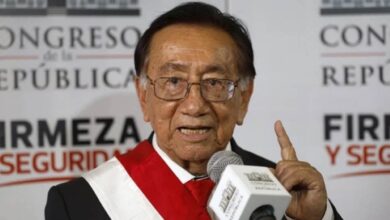Xi Jinping: what does the future of China look like?
The president presented his vision of a “new era” in the congress of the communist party, which is being held this week

Chinese President Xi Jinping presented a more confident vision of China, which is projected to be more prosperous and with a more outstanding role in the world. In addition, the president stressed the importance of ending corruption, income inequality and pollution. At the opening ceremony of the Chinese Communist Party Congress, Xi promised to build a “modern socialist country” that will be proudly Chinese and faithfully governed by the party but open to the world. Although his speech made it clear that there are no plans for a political reform, Xi said that China had entered a “new era”: this phrase was used 36 times during the 3 and a half hours of his speech.
The congress, which happens twice a decade, will last for a week, mostly behind closed doors, but in the end, it will unveil a new Standing Committee of the Politburo to govern the 1.4 billion Chinese over the next five years.
A discourse of aspiration and not of action
Regarding the economy, Xi said China will relax market access for foreign investment, expand access to its services sector, and strengthen state-owned enterprises. Foreign investors have been waiting for these decisions since his coming to power.
In what was probably an indirect reference to President Donald Trump’s “United States First” policy, Xi promised that China would fully engage with the world and reiterate its promises to address climate change. “No country can address just the many challenges facing humanity, no country can afford to retreat to self-isolation”, Xi told delegates, including Buddhist monks, Olympic medalists, and farmers.
Read also: China: the new power?
Xi set audacious long-term goals for China’s development, imagining it as a modernized country by 2035, and a major influence on the world stage by 2050. But he noted that there would be no significant political reforms, since, for Xi, the system of China is the most comprehensive, genuine and most effective way of safeguarding people’s interests. The Chinese president has overseen a radical crackdown on civil society, blocking lawyers and rights dissidents and tightening Internet controls as it has sought to revitalize the Communist Party and its place in contemporary China.
In his speech, XI extended from praise to the party’s successes, in particular to his high-profile anti-graft campaign, in which more than a million officials have been punished and dozens of former senior officials imprisoned, saying corruption was the “most serious threat” the party faces, and must be eradicated completely. Taiwan was another theme of the speech, in which Xi took the opportunity to emphasize that China will never allow the island to separate. Xi did not mention North Korea, which infuriated Beijing with its nuclear and ballistic missile tests defying US sanctions in past months.
Read also: China: Latin America’s new ally
Xi has consolidated power quickly since taking over the party’s leadership in 2012, shutting down his rivals for corruption, restructuring the military and affirming China’s growing strength on the world stage.
Xi, 64, considered the most powerful Chinese leader since Mao Zedong, spoke to more than 2,000 delegates at the carpeted Great Hall of the People of Beijing, including former President Jiang Zemin, 91. The current president will continue to lead the reins of the Asian giant until 2022, when the next congress meets.
Reuters
Prepared by: Carlos Eduardo Gómez Avella
Copy edited by: Laura Rocha Rueda





